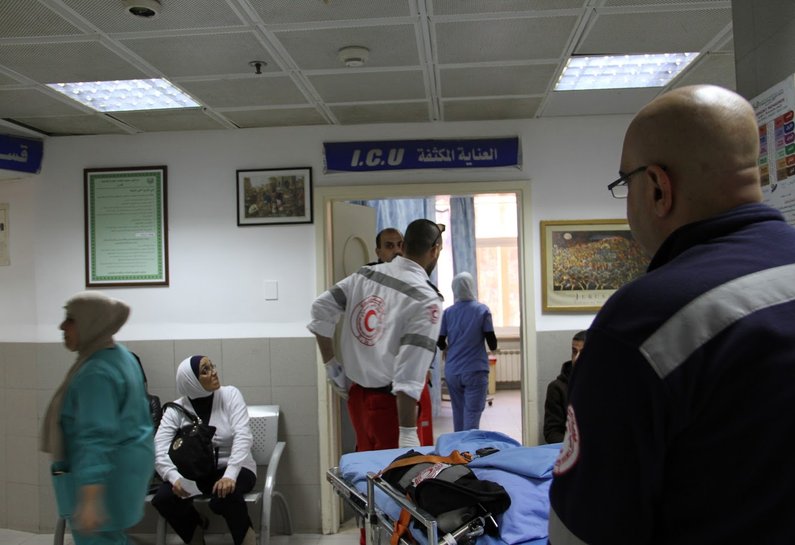US cuts to East Jerusalem hospitals threatens thousands of Palestinian patients’ lives

The health facilities affected are al Mekassed Islamic Charitable Hospital, Augusta Victoria Hospital, the Red Crescent Maternity Hospital, St John’s Eye Hospital, Princess Basma Rehabilitation Centre and St Joseph’s Hospital. They provide medical specialities which the Palestinian Ministry of Health is unable to provide in the West Bank and Gaza, including radiotherapy, cardiac and eye surgeries, neonatal intensive care, children’s dialysis and physical rehabilitation for children.
Reacting to the cuts the CEO of the Augusta Victoria Hospital, Walid Nammour, said:
"We are the only entity that provides critical health services not available elsewhere in Palestine. Patients should not be caught in the middle of political issues."
Augusta Victoria is the only Palestinian hospital providing radiotherapy for cancer patients, with the oPt’s single functioning linear accelerator (the machine used for radiotherapy treatment). Though there is one in Gaza’s Al Shifa Hospital, it has never functioned and has not been made operable particularly due to the challenges of getting specialist technicians into blockaded Gaza.
The US’s financial contribution to Augusta Victoria used to cover 25% of the hospital's bills. On the day the cuts were announced, a nurse asked Walid Nammour how US funding cuts would affect their bone marrow transplant programme and a doctor questioned how it would impact the supply of chemotherapy drugs - half of hospital's budget.
Access to the hospital is a lifeline for many Palestinian cancer patients. This is especially true for patients in Gaza, where the health sector struggles under more than a decade of blockade, separation from the West Bank and repeated conflict. Last month, Al Rantisi Hospital in Gaza City, which provides oncology services, reported that 75% (45 out of 60) of their chemotherapy drug items had reached ‘zero stock’ levels, meaning that less than one month’s supply remained on shelves.
Palestinians in Gaza with cancer are suffering atrociously due to Israeli movement restrictions. Last year, 46 of 54 patients known to have died after being forced to miss scheduled appointments outside Gaza had cancer. The approval rate in 2017 for exit permits issued by the Israeli authorities to patients seeking treatment outside Gaza was the lowest, just 54%, since the World Health Organization (WHO) began collecting figures in 2008.
The cuts in aid to East Jerusalem are the latest in a series imposed by the US. Last month, the US cut $200m in Palestinian economic support funds for programmes in the West Bank and Gaza. At the end of the month, they also announced they were cutting all funding to UNRWA, the UN agency responsible for humanitarian support to Palestinian refugees, amounting to a reduction of nearly a third of UNRWA’s operating budget.
Medical Aid for Palestinians’ Chief Executive Aimee Shalan, reacting to US aid cuts, said:
“The rest of the international community, including our Government in the UK, must be vocal in their opposition, and take urgent action to prevent further suffering. We must work together to counteract the rapid and deliberate erosion of the international legal consensus that underpins Palestinians’ rights to health and dignity.”

